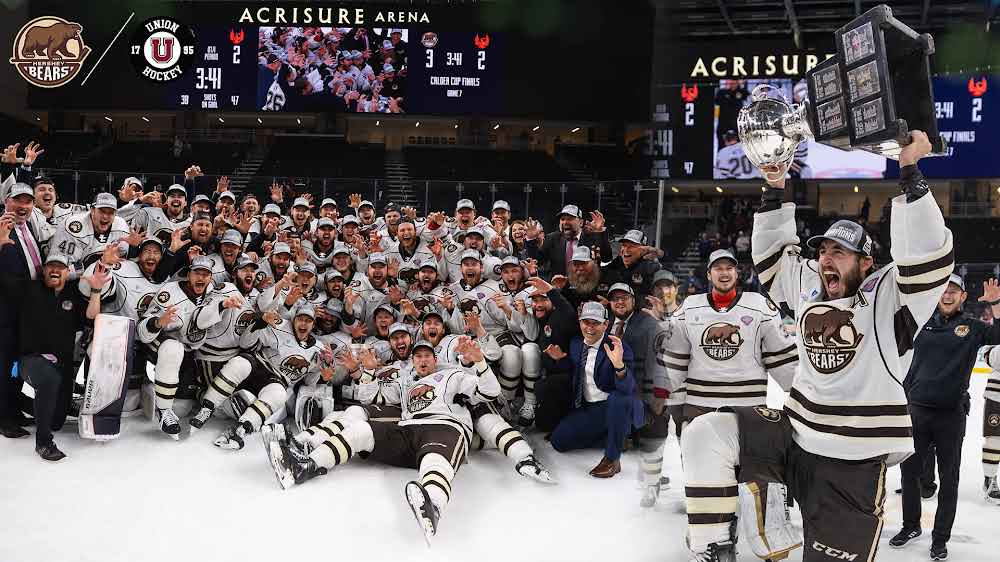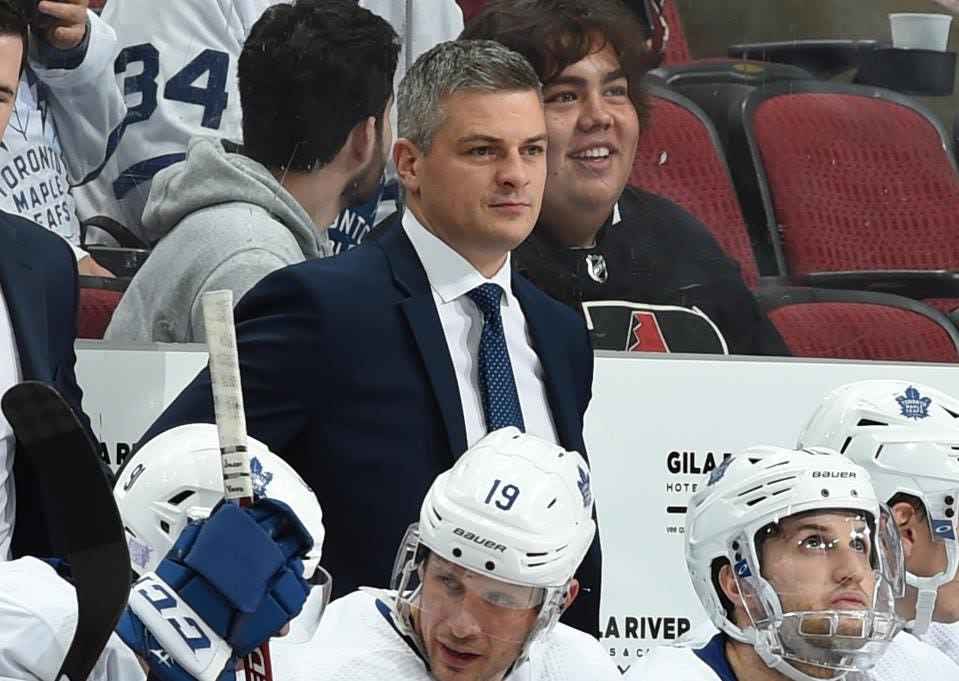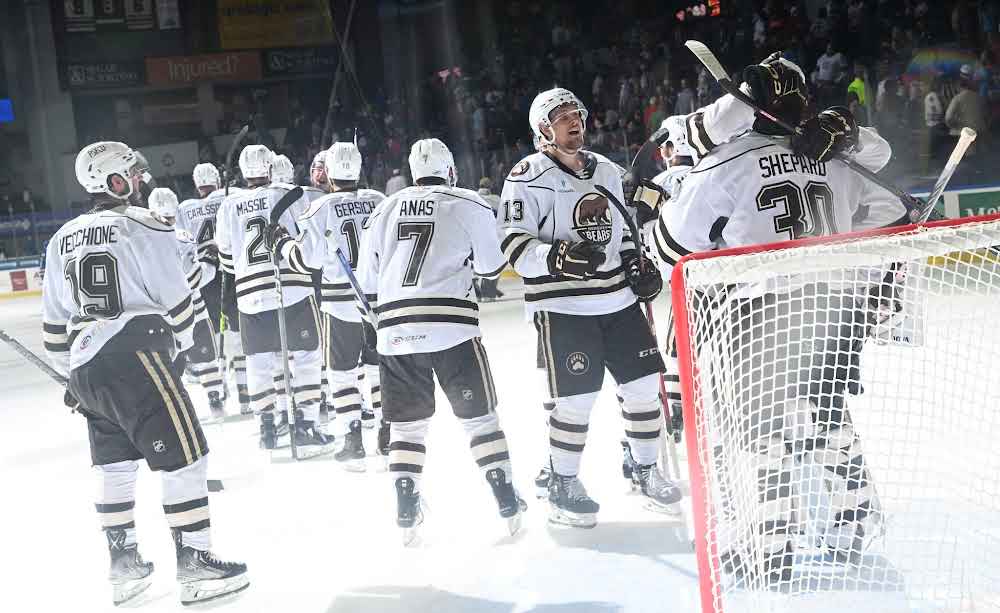
This time the Washington Capitals made sure that Spencer Carbery did not get away.
The 41-year-old Carbery is beginning his first season as head coach of the Capitals, his third stint in the organization. He spent eight seasons in South Carolina, Washington’s affiliate in the ECHL, first as a player then as an assistant coach and finally as head coach. He later served as head coach of the Hershey Bears from 2018 to 2021, winning the Louis A.R. Pieri Memorial Award as the AHL’s outstanding coach in 2020-21 and sending a parade of NHL-ready talent on to the Capitals and elsewhere.
In between, he was head coach of Saginaw in the Ontario Hockey League for one season, an assistant with the Providence Bruins for one season, and most recently assistant coach of the Toronto Maple Leafs since 2021.
“It’s been a crazy ride,” Carbery said of his coaching climb through hockey. “I think maybe the way to describe my journey is that I was able to go into a bunch of different organizations in different leagues that gave me a ton of valuable experience and learned a ton.”
Working for fellow AHL coaching alumnus Sheldon Keefe in Toronto, Carbery handled the forwards and power play and had instant success. The Maple Leafs power play converted at 26.6 percent in Carbery’s two seasons there, the second-best rate in the NHL in that span. His 2022-23 Leafs generated 251 goals, fourth-best in the NHL.
With that kind of tactical success and a reputation for strong interpersonal skills, Carbery attracted interest from multiple National Hockey League clubs, including Washington, with head-coaching vacancies after Toronto’s postseason run concluded in May. This time the Capitals got Carbery, naming him their head coach May 31.
Carbery cites his season working for head coach Jay Leach in Providence, his first in the AHL, as a critical step in his development. That season he handled the Bruins’ penalty kill among his responsibilities.
“I’m in a different organization that I’ve never been in, I’m learning,” Carbery said, his voice rising. “Their history speaks for itself, what they’ve been able to accomplish, the players that have gone through there, the leadership. I was so fortunate to be able to learn a ton of stuff inside the Bruins organization from Jay Leach and [Boston head coach Bruce] Cassidy.”
Then came Hershey, where he helped to send Pheonix Copley, Ilya Samsonov, Vitek Vanecek, Martin Fehervary, Jonas Siegenthaler, Travis Boyd, Brett Leason, Liam O’Brien, Nathan Walker and others on to NHL jobs.
“I’ve been very, very fortunate to have been able to gain experience at different levels in different organizations, where selfishly I leave those situations a way better coach than I arrived,” Carbery said.
But Carbery gained that experience by taking chances. He left a good situation with South Carolina to work in the OHL, a place where he had never before worked. He moved on to the AHL, another new league for him, to join Providence. He built a strong base of success in Hershey before heading into Toronto’s pressure-packed environment to work with some of the NHL’s most elite talent.
“There were a lot of leaps of faith in those decisions, in that decision-making process,” Carbery acknowledged. “The part that was by design was trying to be willing to take some risks and be willing to change course and not look back.

“I don’t think it was scripted. I just knew I wanted a new challenge and so I was hungry. I was confident that I could do the job, and when that opportunity presented itself, I was like, ‘This will be a great challenge. This is how I’m going to grow, so I’m going to become a better coach by spreading my wings and trying to gain knowledge and go to something that was different and I hadn’t been a part of.’”
There is the always-present risk for any coach at any level of falling on one’s face. Coaching is far from a secure business, especially for a hungry young coach trying to navigate a far-from-defined path. And Carbery, after all, had his wife, Casey, and a growing family to consider.
“When you’re evaluating situations and scenarios, there’s no question you think about, ‘What is the worst-case scenario here that could happen?’,” he acknowledged. “And you have to, especially when you talk about moving a family and you have children. But once I’m in, I’m all-in, and there’s no looking back. I’m going to pour everything I’ve got into every single day.”

Whether it’s an NHL superstar like Auston Matthews or a junior player trying to stay in the lineup, Carbery knows the most essential, straightforward element of coaching is also its most challenging.
“That is Coaching 101 right there,” Carbery said. “How do you handle all those types of players?
“One, create buy-in [to] what we’re trying to do as a team. And two, make them the best version of themselves. You’re getting the most out of that player individually, so he’s playing at a high level.”
And how do you execute that?
“That’s coaching. Whether it’s the 16-year-old that has a ton of room for growth or it’s the 30-year-old in the AHL who maybe feels like he didn’t get a fair shake and is a little bit frustrated that he’s not in the NHL, how do I create buy-in and help that player be his absolute best?”

While Carbery may seem like the next hot name in the NHL coaching business, it has taken 13 seasons, four leagues and five teams to land this job in Washington. For an ECHL player who had been considering going into the financial world after his career ended, coaching has been his path to the NHL.
“I love the individual player relationship with the development part of how can I help this player? How can I help him reach his absolute max potential and his goals of playing in the next level?
“Right from that first year, I just fell in love with it.”
Leave a Reply